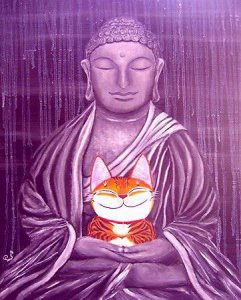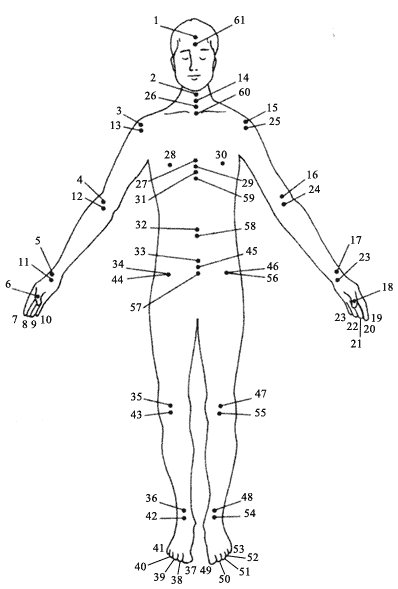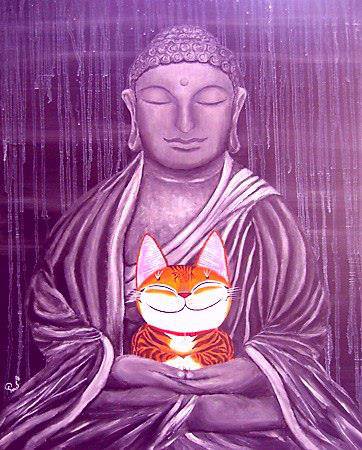Clarity of consciousness: freedom from discontent
 Have you ever been unhappy? 😉 Something is contrary to your desires and ideas, and you fall into a certain state in which you experience your disagreement with what is happening in the range from “It’s kind of sad today” to “I’ll tear everyone up, you bastards!”. Perhaps, dissatisfaction with some people seems like a completely normal way of responding to some life troubles – but let us first see: what is really behind this “norm of discontent”. At the root of the word “discontent” is the word “will.” Moreover, in the Russian language the word “will” has two meanings: will as freedom – and will as a power component of a person, as his ability to control himself. Oddly enough, in the concept of “dissatisfaction” both meanings take place and lead, in fact, to a single result. The term “Discontent” means the state of a person who has not reached the basic state of a developed and intelligent being, filled with vital force – to a state of will: he is not-up-free. Moreover, here the word “will” means both freedom – where “I am not up to free” means “I am deprived of freedom of choice” – and the ability to control – where “I am not up to free” also means “I have no will, I’m deprived of the technical ability to do as I want ”- that is, again, deprived of freedom of choice.
Have you ever been unhappy? 😉 Something is contrary to your desires and ideas, and you fall into a certain state in which you experience your disagreement with what is happening in the range from “It’s kind of sad today” to “I’ll tear everyone up, you bastards!”. Perhaps, dissatisfaction with some people seems like a completely normal way of responding to some life troubles – but let us first see: what is really behind this “norm of discontent”. At the root of the word “discontent” is the word “will.” Moreover, in the Russian language the word “will” has two meanings: will as freedom – and will as a power component of a person, as his ability to control himself. Oddly enough, in the concept of “dissatisfaction” both meanings take place and lead, in fact, to a single result. The term “Discontent” means the state of a person who has not reached the basic state of a developed and intelligent being, filled with vital force – to a state of will: he is not-up-free. Moreover, here the word “will” means both freedom – where “I am not up to free” means “I am deprived of freedom of choice” – and the ability to control – where “I am not up to free” also means “I have no will, I’m deprived of the technical ability to do as I want ”- that is, again, deprived of freedom of choice.
Dissatisfaction as a violation of desires. We are unhappy when something goes against our will, our desire. It is as if they are deviating from our own course, and the will of others begins to direct us in a direction that we did not choose, which we did not give our consent to. Here, our will is a kind of hidden compass that indicated the direction we need – and suddenly this course is violated by someone else’s strength. The man wanted others to act in his interests, within the framework of his will – and they, such rascals, do not obey this. He immediately falls into a state of dissatisfaction with the situation – where his will is ignored, the world does not act the way he wants, deprives him of his freedom. But this is on the surface – and what happens inside? The first thing that arises in the dissatisfied is the emotional reaction of disagreement. But fundamentally, emotion is an uncontrolled surge of energy. This means that when a person who is energetically integrated into a system of ideas familiar to him and mastered by him, finds himself in a situation where the energy of his intentions comes across an unexpected obstacle modeled by an alien force – it, its energy, instantly reaches its peak value, leaves the familiar channel, and begins to flow uncontrollably. In fact, this is a kind of energy explosion – which can be in the range from micro to macro, and is directed both inward, dissatisfied, where it destroys the person himself – and outward, where he destroys surrounding people and space. For the human brain, getting into a situation of discontent means that the familiar and convenient picture of the world, the picture of established ideas, is being violated. And this is what he loses stability for some time (from fractions of seconds to hours, days, and years), loses the ability to live and act as he used to – in that state of rest that gave him stability.
Signs of dissatisfaction – or “Who is subject to dissatisfaction.” As already mentioned, the essence of dissatisfaction is “I am deprived of freedom of choice.” But let’s take a sober look: what freedom of choice does a person have in the world of endless secrets, where is his first secret – is he himself? If you answer this question honestly, then there is no so-called we have no real freedom – we only have the opportunity to act within certain frameworks and limitations. And the first one who falls into a defeatist state of discontent is the one who, by virtue of his egoistic impudence and self-conceit, believes that for him this framework is not a decree. And that he can strain the world and make it fit his ideas. As a result, the world works like an ordinary spring, and with a reinforced reverse impulse returns its tension to the dissatisfied. The flip side of response is acceptance. For those living in duality, I’ll add right away: accepting does not mean that you are being beaten – but you are standing and smiling, drooling. Acceptance is a complex unity algorithm in which you react appropriately to the situation (for example, you defend yourself perfectly when you are attacked) – but you do not allow yourself to be drawn into the situation internally. Those. if a dual person can be either in one state or in another (or in defense – or in acceptance), then the person of unity perfectly combines this into a single whole: when he accepts the situation completely, he simultaneously and adequately reacts. At the same time, he does not have any discontent and simply cannot be – because he is always the master of his will, and he is always free to control his will. Moreover, with a high level of development, he is already so free that he simply does not need any will – he fits into the energy movement of the world, and the energy of the world directs him in the best direction, to the best decisions. For the mind, this algorithm is not available – because the mind is based on the discreteness of “either-or”.




